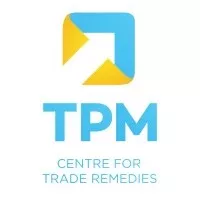On 14th December 2022, the WTO Secretariat published its trade policy review of the United States of America. The Trade Policy Review Mechanism requires a periodic review of the trade policy and practices of WTO members to examine its adherence to the WTO commitments. This is the fifteenth trade policy review of the United States. The review focuses on the changes in the economic environments, trade and investment regime, trade policies and measures in general as well as specific to trade sectors, when compared to the last review conducted in 2019.
United States is the largest single trading country within the WTO and has been an active participant in the multilateral trading system, including negotiations and dispute settlements. Since 2019, United States has raised 2 complaints in the WTO while 8 complaints were raised against it. It appealed 6 cases to the WTO Appellate Body and was involved in 2 active arbitrations.
In addition to multilateral trading, United States currently has 14 FTAs with 20 countries in place. It recently concluded the United States-Mexico-Canada Agreement, with its largest trading partners. Trade under these FTAs accounted for USD 418 billion of duty-free imports. Regardless, the United States had an overall trade deficit of USD 148 billion with the FTA partners. A major development in the trade policy, since the last review, has been the expiration of the U.S. GSP (Generalized System of Preference) program, under which imports duties were eliminated on thousands of products from developing and least developed nations, including India. However, benefits under the GSP program were withdrawn for India in June 2019 due to lack of assurance to provide equitable and reasonable access to Indian markets.
The United States introduced major amendments to its Trade Enforcement Regulations to strengthen and improve efficiency of the administration and enforcement of the anti-dumping/anti-subsidy laws. The amendments modified the regulations concerning scope inquires, established new regulations concerning anti-circumvention inquiries, modified its regulations regarding new shipper review and introduced variety of other substantive and technical revisions.
With regards the trade remedial measures, the United States continued to be one of the largest users of anti-dumping duties, having initiated 178 investigations between 2018 to 2021. There were 489 anti-dumping orders on imports from 58 countries as of 2021, with 48% duties imposed on iron and steel products alone. Further, there were 169 anti-subsidy measures in place as of 2021, with 46% duties on iron and steel products. China and India had the highest number of measures imposed against them, since 2019. The United States also conducted 186 sunset reviews of anti-dumping/anti-subsidy duty orders, of which 173 were continued, 9 were revoked and 4 were suspended.
In addition to the trade remedial measures, United States also maintained additional tariffs under Section 232 (measures imposed in view of national security) on steel and aluminium imports, However, United States reached an agreement with the European Union, in October 2021, to suspend the additional tariffs in favour of tariff rate quotas. Similar agreements have also been reached with Japan and United Kingdom. Such measures were challenged by China, Norway, Switzerland and Turkey before the WTO and have been held as violative of the United States' obligations under the GATT. Additional duties (Section 301 tariffs) were also imposed on Chinese products produced under the technology transfer regime, being a policy violating U.S. rights or benefits under trade agreements or restricting U.S. commerce.
The United States has imposed second highest number of trade remedial measures against India, with duties exceeding 300% in some cases. Further, various investigations and / or review are also underway with respect to exports from India. This is likely to deter Indian exporters from increasing trade with the United States and would be forced to look for alternate export markets. The trade policy review also highlights a more aggressive approach taken by the United States to protect its national security interests, and the interests of its domestic producers, by way of Section 232 measures on steel and aluminium imports. Even though the Panel decided that such measures are against the United States' obligations under the GATT, with the Appellate Body not being functional, it is to be seen whether such decision would be implemented.
The content of this article is intended to provide a general guide to the subject matter. Specialist advice should be sought about your specific circumstances.
We operate a free-to-view policy, asking only that you register in order to read all of our content. Please login or register to view the rest of this article.



